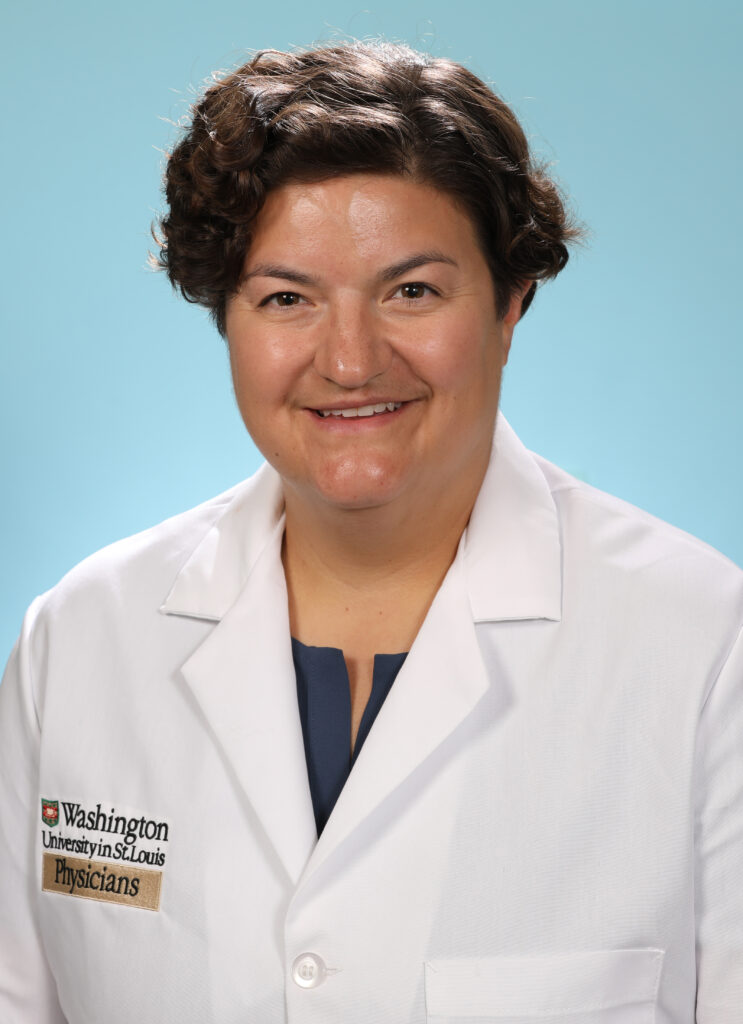With all of the ongoing research from hospitalists within the DHM, and a continued effort to build research in our division, we have decided to launch our 13th committee- the research committee. This committee will focus on cataloging research, as well as discussing resources available at Washington University, methodologies, and providing opportunities for work in progress presentations. These will allow for faculty to present their ideas for research projects and receive feedback.


Stephanie Conner, MD, has been focusing on a research project entitled, “POCUS-Guided Triage Protocol to Reduce Inpatient TTE Utilization.” In collaboration with representatives from the division of cardiology, POCUS-certified and certification-in-progress POCUS users have developed a protocol to identify eligible inpatient TTE orders and use POCUS to recommend a triage decision (continue with inpatient order, defer to outpatient, or cancel). They are in the process of validating that protocol, with the goal of implementing the triage protocol across the medicine service line. The validation phase began in September of 2023, spanning through December of 2023. Currently, the project is in the data analysis and implementation phase, which is expected to continue through March of 2024. Initial implementation is scheduled to start in April of 2024. Currently, they are seeking grants for ongoing work. This project has two abstracts, one of which has been accepted by the Society of Hospital Medicine Converge Conference in 2024. The other abstract has been submitted for the BJH Quality and Patient Safety Symposium. There are also two planned publications upcoming this year. We’re excited to see this project continue to develop.
“In collaboration with representatives from the division of cardiology, POCUS-certified and certification-in-progress POCUS users have developed a protocol to identify eligible inpatient TTE orders and use POCUS to recommend a triage decision (continue with inpatient order, defer to outpatient, or cancel). They are in the process of validating that protocol, with the goal of implementing the triage protocol across the service line.”
Stephanie Conner, MD
Justin Chen, MD, has also been working on two research projects. The first project is entitled, “Formative Mixed Methods Research on a Heart Failure Polypill Implementation in the United States.” A polypill implementation strategy is proposed to improve the care of heart failure with reduced ejection fraction by increasing patient medication adherence and provider prescription of all four-guideline directed medical therapies. They conducted a multi-center mixed methods study involving in-depth interviews and stakeholder surveys to explore patient and provider perspectives on how a HFrEF polypill should be designed and implemented to change the HFrEF treatment paradigm. This study is a collaboration between Washington University in St. Louis, University of California San Francisco and the American College of Cardiology and conducted in St. Louis and San Francisco. This project was started in December of 2022, and expected to be completed in March of 2024. Currently, they are funded by the NIH/NHLBI K99 Grant and Doris Duke Charitable Foundation Grant. This project won a clinical award at Washington University’s Cardiovascular Research Day and has also been accepted as a moderated presentation at the ACC National Conference. There is a manuscript in preparation to be published.
“A polypill implementation strategy is proposed to improve the care of heart failure with reduced ejection fraction by increasing patient medication adherence and provider prescription of all four-guideline directed medical therapies.”
Justin Chen, MD
Dr. Chen’s other current project is entitled, “Patient and Providers of a HFrEF Polypill: A discrete and situational choice experiment.” The adaptability, effectiveness, appropriateness of a HFrEF polypill to safely change the HFrEF treatment paradigm is dependent on the components and available formulations of a HFrEF polypill. To explore provider preferences on how a HFrEF polypill should be designed, they will distribute a discrete and situational choice experiment survey to multiple centers throughout the United States. In this survey, providers will be presented with different HFrEF polypill designs for different scenarios and select their preferred design. This study is a collaboration between WashU and UCSF. This project began in October of 2023, and is expected to continue through September of 2024. The project is also receiving funding from the NIH/NHLBI K99 Grant and the Doris Duke Charitable Foundation Grant. There are currently no presentations or publications for this project.
The research committee will have its first meeting on February 1st, and we will continue to update the website with additional details about the projects taking place within the DHM.